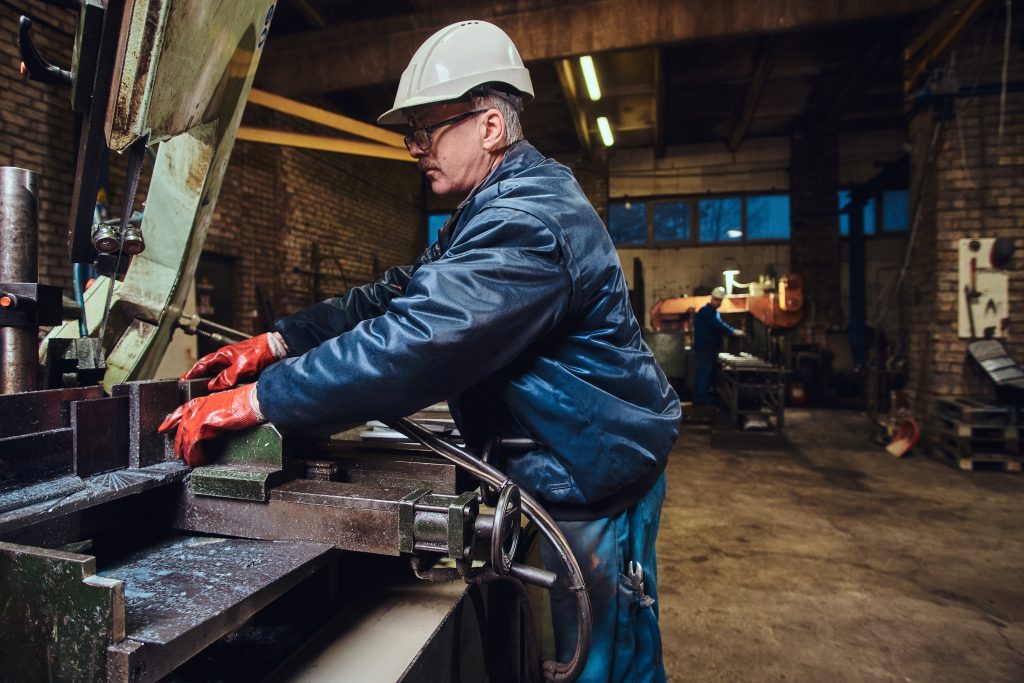When launching a startup, making the right decision about whether to rent or buy industrial equipment can be crucial for your business’s success. Here are some key considerations!
What Are the Cost Implications of Renting Versus Buying?
The financial aspect is arguably the most significant factor in deciding whether to rent or buy industrial equipment. Renting often has a lower upfront cost, making it more attractive for startups that may not have substantial initial capital. On the other hand, buying can be more cost-effective in the long run, particularly if the equipment will be used extensively.
If your business will use the equipment for a short period, renting becomes the more viable option. Equipment that sees less than 60% utilization should be rented to avoid the pitfalls of high depreciation and storage costs. The shorter the period that you will be using the equipment, the more you should lean towards renting.
Moreover, renting eliminates the need for a large initial investment, freeing up funds for other critical areas of your start-up. However, continuous renting costs can add up and become more expensive over time compared to purchasing. Therefore, a detailed cost-benefit analysis is vital to make an informed decision.
How Does Usage Frequency Affect the Decision?
Usage frequency plays a pivotal role in determining whether to rent or buy industrial equipment. High-frequency usage often justifies purchasing as it provides better value for money over time. Conversely, irregular or seasonal use might make renting the more sensible choice.
For instance, if your business operations require equipment that will be used daily, purchasing might be the more economical long-term option. High utilization helps in quickly recouping the investment costs and reducing dependency on rental companies. This also allows for equipment to be calibrated and maintained according to your specific needs.
However, if the equipment will be used sporadically, renting provides the flexibility to scale up or down as needed. Renting can offer significant financial relief and adaptability, which is particularly useful in handling fluctuating workloads. This approach also helps avoid the risks associated with equipment obsolescence.
What Is the Impact on Maintenance Responsibilities?
Maintenance responsibilities significantly differ between renting and buying, impacting your decision. When you purchase equipment, you bear the full brunt of maintenance, repairs, and any associated downtime. This not only adds to operational costs but requires dedicated personnel or external services.
In contrast, renting shifts the maintenance burden to the rental company, providing peace of mind. Rental contracts often include maintenance and repair services, allowing your business to focus on core operations. This aspect can be particularly beneficial for start-ups that may lack technical expertise.
Another factor to consider is air pressure; dispense valves often require a minimum air pressure of 70-80 PSI to function properly. Regular maintenance ensures such operational standards are met, but when renting, it’s the provider’s responsibility to ensure equipment is in optimal condition. Thus, renting can simplify your maintenance strategy substantially.
How Does Equipment Quality and Technology Trends Influence the Choice?
Technological advancements and equipment quality are crucial considerations when deciding to rent or buy. Industrial equipment technology evolves rapidly, and purchasing may result in owning outdated machinery. With renting, businesses can access the latest technology without incurring substantial costs.
Rapid technological change means that buying can lock you into specific equipment can limit your flexibility. Renting allows for equipment upgrades as technological advancements occur, ensuring operational efficiency and competitiveness. This adaptability is essential in an era where technological innovation can transform business processes.
However, investing in high-quality, state-of-the-art equipment can offer long-term benefits and reliability. Ownership means you can customize the equipment to better meet your business-specific needs. The decision hinges on balancing the benefits of ownership with the agility renting offers in adapting to technological trends.
What Are the Contractual and Logistical Considerations?
Lastly, contractual and logistical aspects shouldn’t be overlooked when deciding to rent or buy industrial equipment. Rental agreements offer flexibility with shorter commitment periods, whereas purchasing requires a long-term commitment. The nature of these agreements can significantly impact your operational flexibility and financial planning.
Logistics, such as transportation and storage, also need consideration. Renting can include delivery and pick-up services, easing the logistical burden on your business. However, purchasing necessitates developing your own logistics strategy for handling, transporting, and storing the equipment.
Additionally, it’s recommended you clean your industrial warehouse every one to three days to maintain optimal conditions. With rental equipment, adhering to such maintenance schedules often becomes the rental company’s responsibility. This can simplify your operational logistics and ensure compliance with best practices.
By addressing these key areas, you can make a decision that aligns with your business goals and operational needs. Whether renting or buying, a well-analyzed decision will enable your startup to operate efficiently and competitively.










